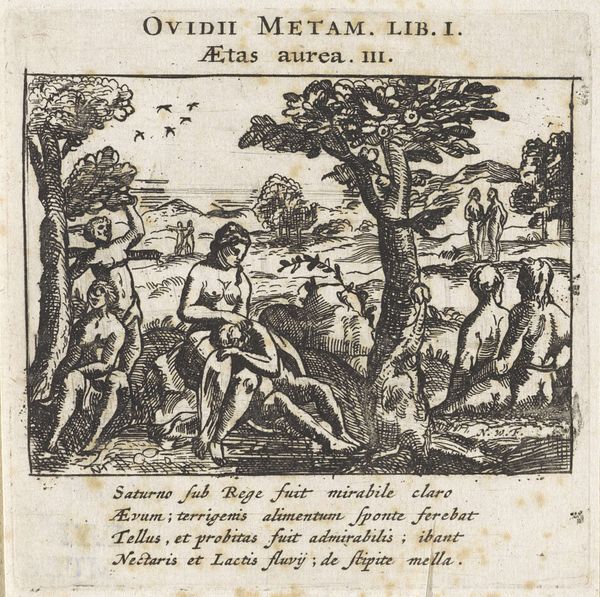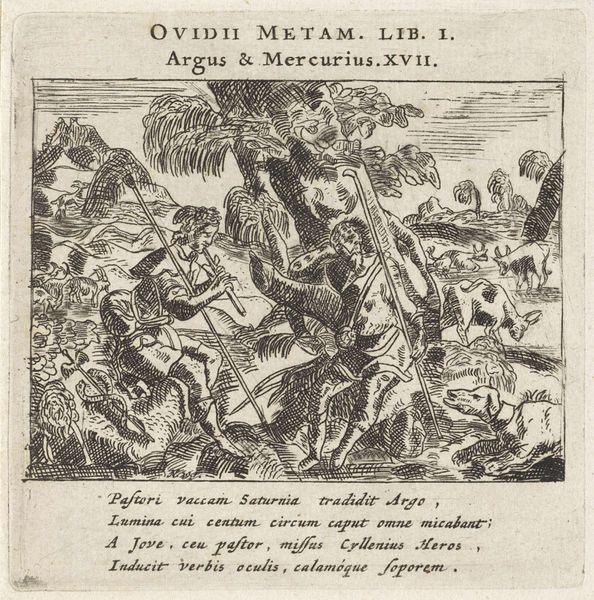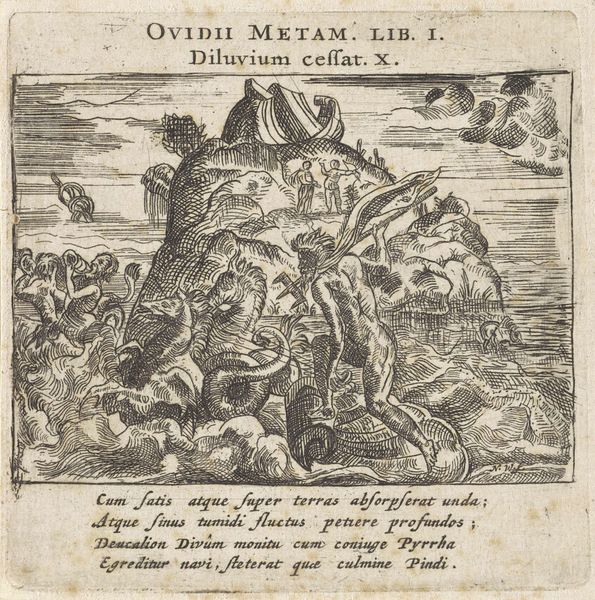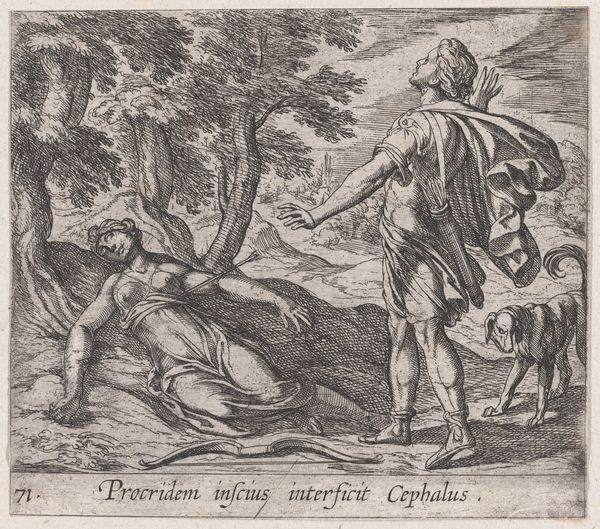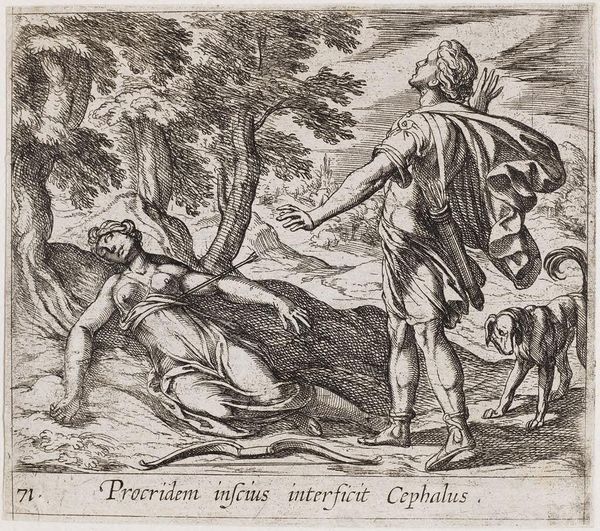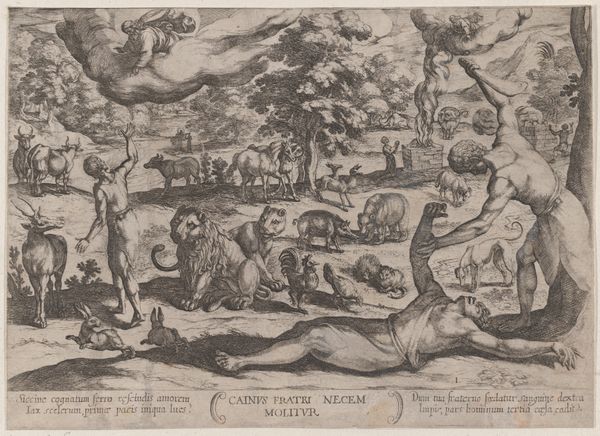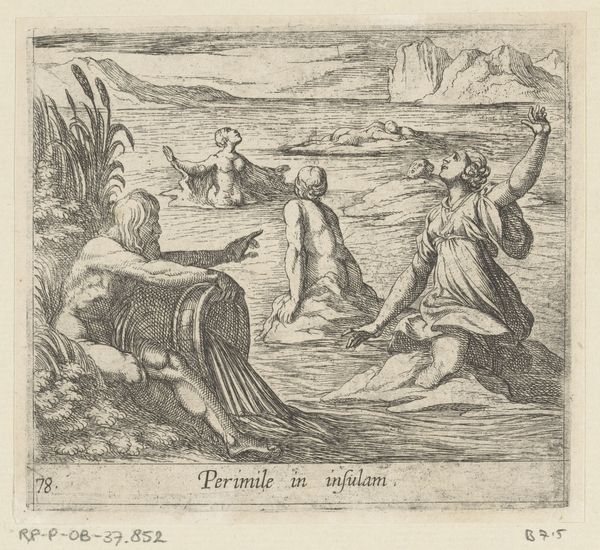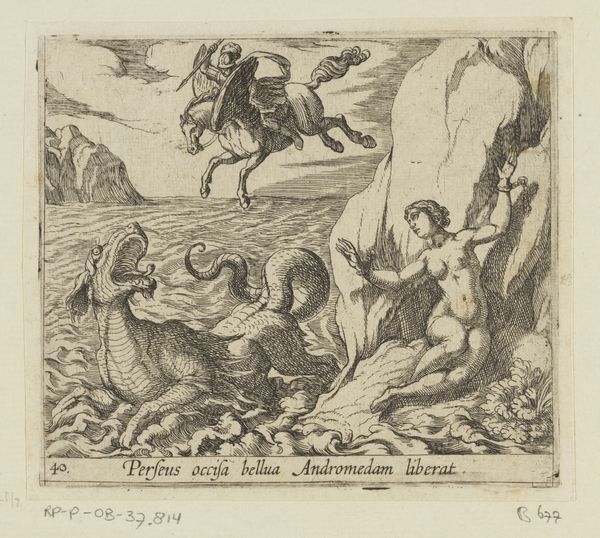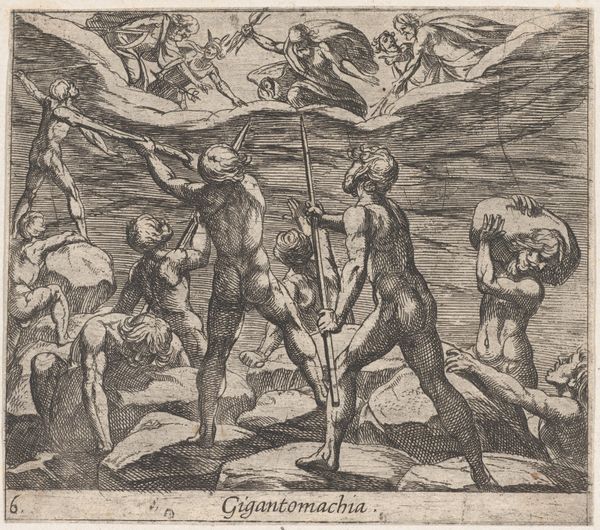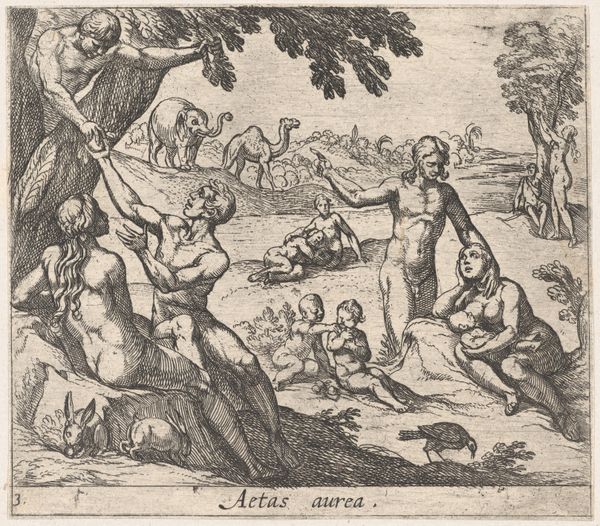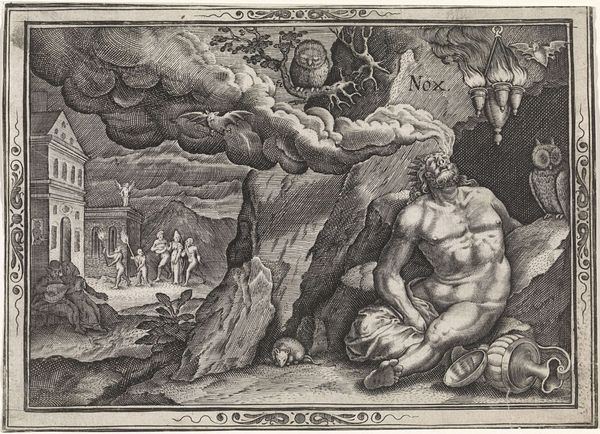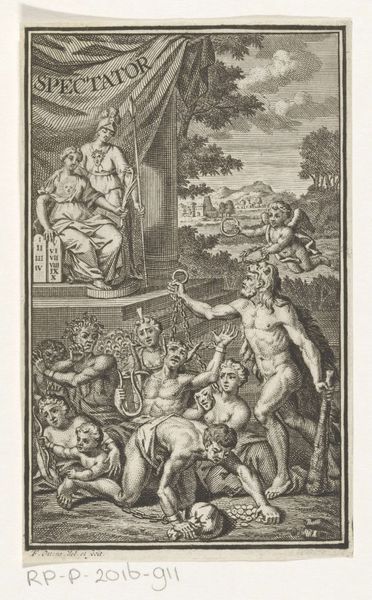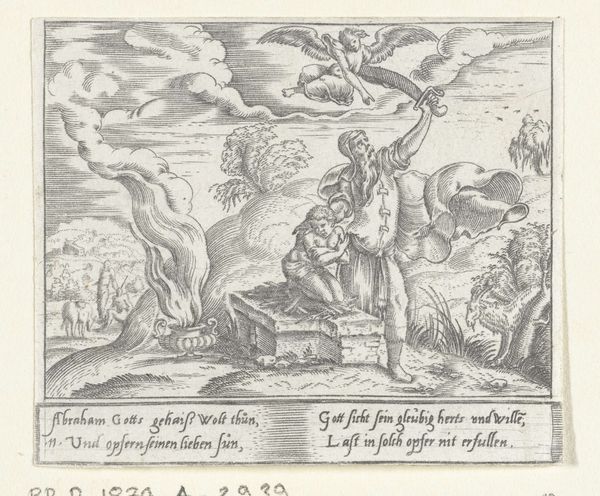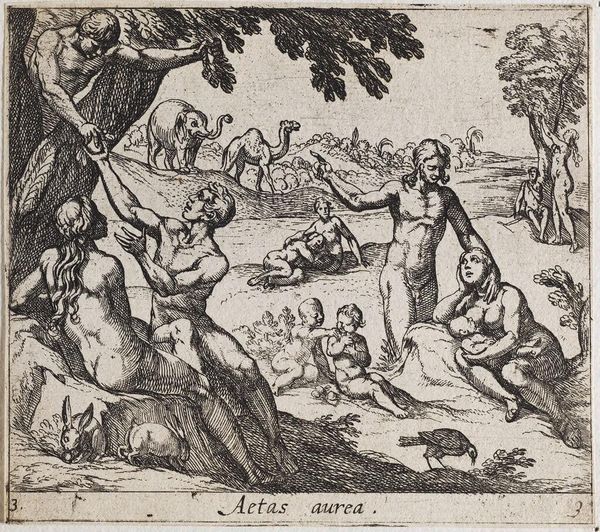
print, etching, engraving
#
narrative-art
#
baroque
# print
#
etching
#
old engraving style
#
landscape
#
figuration
#
history-painting
#
engraving
Dimensions: height 85 mm, width 85 mm
Copyright: Rijks Museum: Open Domain
This engraving, *Zondvloed van Deucalion,* was made by Nicolaes Cornelisz. Witsen in the late 17th century. The image depicts a scene from Ovid's *Metamorphoses*, illustrating the great flood sent by Zeus to punish human wickedness. Reflecting the cultural anxieties of its time, the artwork portrays the flood as an event of total chaos and loss. The naked figures, stripped bare and vulnerable, desperately seek refuge from the rising waters. The natural world, trees, and mountains are no longer a source of comfort, but rather a stage for human suffering. Witsen’s engraving captures the raw emotion of the event, the fear and desperation that accompany the loss of everything familiar. There is no hierarchy: men, women, and children are equally vulnerable. The choice to depict all figures nude emphasizes the common human condition stripped of social status. In the text below the engraving the line: "frustra mortalibus usquam Auxilium", reinforces the utter helplessness. The engraving serves as a memento mori. The image resonates with a sense of collective guilt and the ephemeral nature of human existence.
Comments
No comments
Be the first to comment and join the conversation on the ultimate creative platform.
